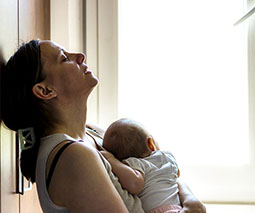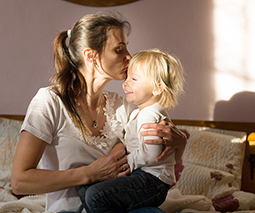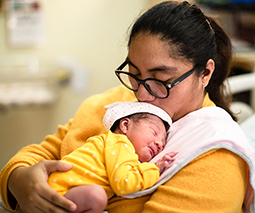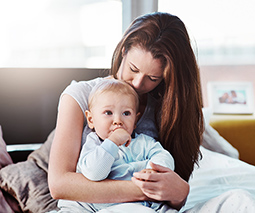7 exercise mistakes mums make after having a baby
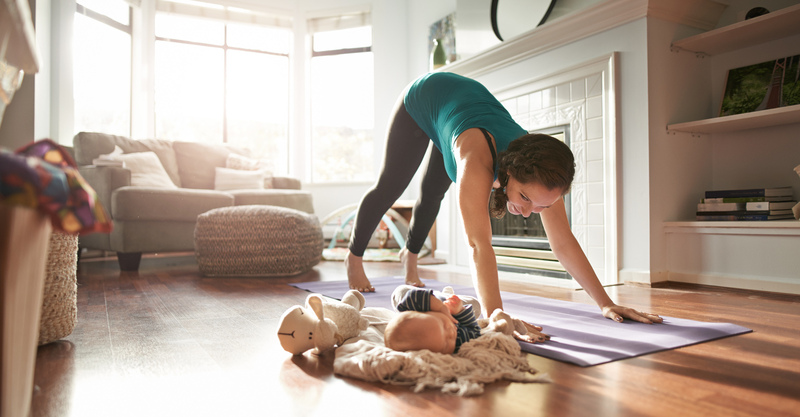
If you’re thinking about returning to exercise after having a baby, good for you! Exercise has many perks and can be a great way to spend time doing something you enjoy that also makes you fitter and stronger in the process.
But starting again to exercise after having a baby can be surprisingly difficult. After all, everything is different now that you’ve had a baby. Your body, energy, and emotions have been through a massive change that can take time to get used to, plus now that there’s a baby on the scene, it’s no longer a case of casually packing your gym bag and popping off to the gym.
The exercise landscape as you knew it has changed completely, but by avoiding a few classic mistakes that many of us make when we return to exercise after birth, you’ll hit the ground running and won’t look back.
Here are 7 exercise mistakes to avoid after having a baby:
1. Not starting pelvic floor exercises right away
If you start exercising with a weak pelvic floor, incontinence or injury could grind your workout to a halt. Pelvic floor exercises are the one exercise you can start right away, says Emily Smith, personal trainer and founder of TUF Mums Mindset. “You can start them as soon as you leave hospital,” she says, “Provided there haven’t been any complications during the pregnancy or birth and they feel okay to do.”
2. Starting with the wrong type of exercise
High impact exercise can be bad news for your postpartum body, and that’s even after getting the all clear at your 6-week check-up, says Emily. “You need to ease into exercise, and your pelvic floor is one reason to go slow but the other is your energy levels, which aren’t the same when you’ve had a baby. The energy it takes to do high impact exercises is likely to drain your energy levels rather than add to them.” With a tiny baby demanding you be available around the clock, it makes sense to conserve your energy and save high impact exercise for later down the track.
3. Ignoring pain
Your body has changed substantially since before you were pregnant, so expecting it to perform the same way might yield some twangs and pains that weren’t there before, but ignoring the twinges could be at your peril. “Even if you could do them before pregnancy, feeling pain when you try something like a plank could be telling you that a certain part of your body hasn’t recovered yet,” says Emily. By listening to what your body is telling you, you lessen the risk of injury and give your body the chance to recover fully after pregnancy and birth.
4. Having expectations that are too high
You’re not the same person you used to be. Not only are you likely to be dealing with fluctuating hormones and energy levels, but your new-mum responsibilities could have you far more occupied than you first thought, which means reaching those big target goals could be unrealistic. Emily agrees that mums need to keep expectations simple and realistic. “As mums, we already have so many expectations placed upon us – about how we should feed, how we should sleep – extra expectations about how you should exercise adds to this mix and can become overwhelming.”
5. Waiting for motivation
If you’re tired and have no energy, waiting for the motivation to exercise might mean it never happens. But setting it up as a daily habit will increase the likelihood of it getting done and becoming a fixture in your daily life. Plus, it doesn’t need to take up a lot of time. “Once you become a mum, you really don’t have time to get into your active gear, drive to the gym and spend an hour working out,” says Emily. Short workouts can have just as good results, as long as they are suited to postpartum bodies.
6. Going it alone
Let’s face it, exercise when you’ve got a baby in tow is hard enough, but maintaining the motivation and determination to see your plans out can be even harder. Once you’ve decided what your exercise goals are, partnering up with a mum friend, or a personal trainer, can help you stay focussed and remind you of your goals. Plus, exercising with someone else is great for accountability. “When we tell our fitness goals to an accountability buddy, we’re 78 percent more likely to reach them,” says Emily.
7. Using social media as a guide
We are bombarded with images on social media of mums with washboard stomachs just days after having a baby, but Emily says these sorts of photos can be misleading and unrealistic to new mums who want similar results. “These fit mums on social media either have incredible genes or have been extremely fit before and during pregnancy, so it’s not realistic to expect that everyone will have those results after having a baby,” says Emily.
When it comes to exercise after birth, the take-home message is to enjoy yourself and be amazed by your clever body, rather than see exercise as a a punishment. “Celebrate your exercise successes, however small,” Emily says. “Associating positive feelings with exercise will mean you enjoy it and come back for more.”

